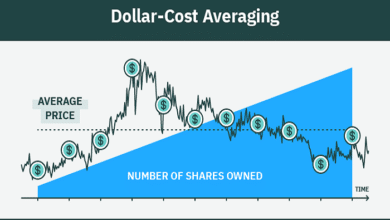Real Estate Investing: The Ultimate Guide to Building Wealth

Real estate investing has long been one of the most reliable ways to build wealth and achieve financial freedom. From generating passive income to benefiting from property appreciation, the opportunities in real estate investing are vast and diverse. Whether you’re a beginner or an experienced investor, understanding the key principles and strategies can significantly impact your success. This guide will take you through everything you need to know about real estate investing to help you make informed decisions.
What is Real Estate Investing?
Real estate investing involves purchasing, owning, managing, renting, or selling properties to generate income or profit. The concept of real estate investing is not new; it has been a cornerstone of wealth building for centuries.
By investing in real estate, individuals can diversify their portfolios and create multiple income streams. Real estate investing spans various property types, including residential, commercial, industrial, and land, each offering unique opportunities and challenges.
Why is Real Estate Investing a Smart Financial Move?
Real estate investing stands out as a smart financial move for several reasons. First, real estate is a tangible asset, providing investors with a sense of security that other investment types, like stocks, may lack.
Additionally, real estate investing offers significant tax advantages, such as deductions on mortgage interest, property taxes, and maintenance costs. Another advantage of real estate investing is its ability to generate passive income through rental properties, allowing investors to earn without daily active involvement.
Types of Real Estate Investing Strategies
Understanding the different strategies in real estate investing is crucial to finding the right fit for your goals and risk tolerance.
1. Buy and Hold
The buy-and-hold strategy in real estate investing involves purchasing a property and holding onto it for an extended period, often to benefit from rental income and property appreciation.
2. Fix and Flip
This strategy involves buying undervalued properties, renovating them, and selling them at a profit. It’s a short-term approach to real estate investing that requires hands-on involvement.
3. Rental Properties
Owning rental properties is one of the most popular forms of real estate investing. This strategy generates consistent cash flow through tenant rent payments.
4. REITs (Real Estate Investment Trusts)
For those who prefer a more hands-off approach to real estate investing, REITs offer the ability to invest in real estate without owning physical properties.
The Benefits of Real Estate Investing
The benefits of real estate investing go beyond financial gains. Here are some of the top advantages:
- Steady Income: Real estate investing can provide a consistent income stream, especially through rental properties.
- Appreciation: Over time, real estate properties typically increase in value, offering investors a significant return on investment.
- Diversification: Real estate investing allows for portfolio diversification, reducing overall investment risk.
- Leverage: Investors can use borrowed capital to increase potential returns, a unique advantage of real estate investing.
- Tax Advantages: Tax deductions and benefits make real estate investing a financially savvy choice.
How to Get Started in Real Estate Investing
Getting started in real estate investing may seem daunting, but breaking it down into steps can make the process manageable.
1. Set Clear Goals
Before diving into real estate investing, define your financial objectives. Are you looking for short-term profits or long-term passive income?
2. Educate Yourself
Learn the basics of real estate investing through books, online courses, or mentorships. Understanding the market is crucial to making informed decisions.
3. Secure Financing
Determine your budget and explore financing options like mortgages, private lenders, or partnerships to fund your real estate investing journey.
4. Choose a Strategy
Select a real estate investing strategy that aligns with your goals, risk tolerance, and expertise.
5. Start Small
Begin with a single property to gain experience before expanding your real estate investing portfolio.
Common Challenges in Real Estate Investing
Real estate investing is not without its challenges. Understanding these hurdles can help you navigate them effectively.
1. Market Fluctuations
The real estate market is subject to economic shifts, affecting property values and rental income.
2. High Initial Costs
Real estate investing often requires significant upfront capital for down payments, renovations, and closing costs.
3. Property Management
Managing rental properties can be time-consuming, especially when dealing with tenant issues and maintenance.
4. Legal and Regulatory Issues
Real estate investing requires compliance with zoning laws, tenant regulations, and tax codes.
By anticipating these challenges, you can create strategies to overcome them and succeed in real estate investing.
Real Estate Investing for the Future
As technology and societal trends evolve, so does real estate investing. Smart investors adapt to these changes to stay ahead.
1. Technology in Real Estate Investing
From property management software to virtual tours, technology is revolutionizing real estate investing, making it more accessible and efficient.
2. Sustainable Properties
Investing in eco-friendly and energy-efficient properties is becoming a trend in real estate investing, appealing to environmentally conscious buyers.
3. Urban vs. Suburban
The shift in demand between urban and suburban properties has created new opportunities in real estate investing, depending on market trends.
Conclusion
Real estate investing is a powerful tool for building wealth and achieving financial freedom. With the right knowledge, strategy, and commitment, anyone can succeed in this field. From generating passive income to benefiting from property appreciation, the opportunities are vast and rewarding.
By understanding the fundamentals, overcoming challenges, and staying updated on market trends, you can make real estate investing a cornerstone of your financial strategy.
FAQs
1. What is real estate investing?
Real estate investing involves buying, managing, or selling properties to generate income or profit.
2. Is real estate investing risky?
Like any investment, real estate investing has risks, but careful planning and research can mitigate them.
3. How much money do I need to start real estate investing?
The initial capital depends on your chosen strategy, but options like REITs allow for entry with lower amounts.
4. What are the tax benefits of real estate investing?
Real estate investing offers deductions on mortgage interest, property taxes, depreciation, and more.
5. Can I start real estate investing with no experience?
Yes, by educating yourself and starting small, you can gain experience and grow your real estate investing portfolio over time.



